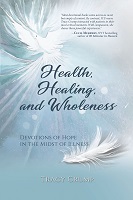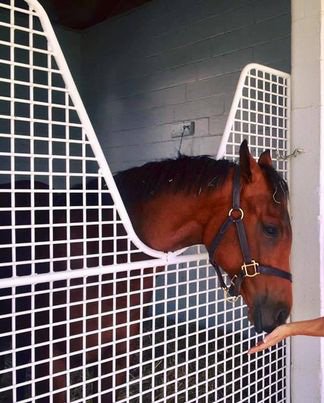Smack Dab in the Middle
 I discovered this lovely chandelier smack dab in the middle of a winding staircase at Biltmore Estate. It helps light the way for anyone climbing the stairs. It also adds beauty to the climb.
I discovered this lovely chandelier smack dab in the middle of a winding staircase at Biltmore Estate. It helps light the way for anyone climbing the stairs. It also adds beauty to the climb.
Smack dab in the middle means exactly in the middle.
It may apply to place, like the location of this light fixture. Place also refers to geography, such as the center of a town, state, or country.
In addition to place, smack dab in the middle refers to:
- Size – between the largest and the smallest
- Level – straight rather than crooked
- Position – in the middle of other people
- Opinion – agreement with points on both sides of an issue
Smack dab in the middle can be good or bad.
- People choose the size of their meal by how hungry they are.
- Homeowners usually want straight walls. Artwork with crooks and curves adds interest.
- Some people hate a middle position. Others like it. Relationship matters more than position.
- A middle opinion or compromise often works. However, people must occasionally stand firm.
Whether people are smack dab in the middle or not, this chandelier offers important lessons.
- Light the way for those in the dark.
- Add beauty to the world.
It also offers a lovely reminder to remain smack dab in the middle of God’s will.
“Do not turn to the right or the left; keep your foot from evil” (Proverbs 4:27 NIV).
Thanks to Margaret Bertram for the suggestion.
Do you have an expression you want explained or a thought about this one? If so, please comment below.
Subscribe to receive my weekly posts by email and receive a free copy of “Words of Hope for Days that Hurt.”
If you enjoyed this post, please share it with your friends.



 On the up and up sometimes refers to people becoming successful.
On the up and up sometimes refers to people becoming successful.  Let it be. Let it lie.
Let it be. Let it lie.  Lions have a big head, a loud roar, and a reputation as king of the jungle. Although big, strong, and fast, lions can be caught and controlled by smaller, weaker, and slower lion tamers.
Lions have a big head, a loud roar, and a reputation as king of the jungle. Although big, strong, and fast, lions can be caught and controlled by smaller, weaker, and slower lion tamers. I recently had to bite the bullet. In one week, I made two major house repairs and replaced the brakes on my car. I was out of town when the brakes stopped working.
I recently had to bite the bullet. In one week, I made two major house repairs and replaced the brakes on my car. I was out of town when the brakes stopped working. “Do you prefer ice cream, cake, or both?” “I’m leaving now. Is that okay?” “Mind if I change the station on TV?” For all these questions, we might answer, “It don’t make me no never mind.” Of course, we don’t give that answer if we prefer correct grammar.
“Do you prefer ice cream, cake, or both?” “I’m leaving now. Is that okay?” “Mind if I change the station on TV?” For all these questions, we might answer, “It don’t make me no never mind.” Of course, we don’t give that answer if we prefer correct grammar. It makes no sense to bite the hand that feeds you. Some animals who
It makes no sense to bite the hand that feeds you. Some animals who  My dad and Uncle Millard differed in many ways. However, they were like two peas in a pod in their love for music.
My dad and Uncle Millard differed in many ways. However, they were like two peas in a pod in their love for music. In addition to shared interests, like Dad and Uncle Millard, two peas in a pod may:
In addition to shared interests, like Dad and Uncle Millard, two peas in a pod may: